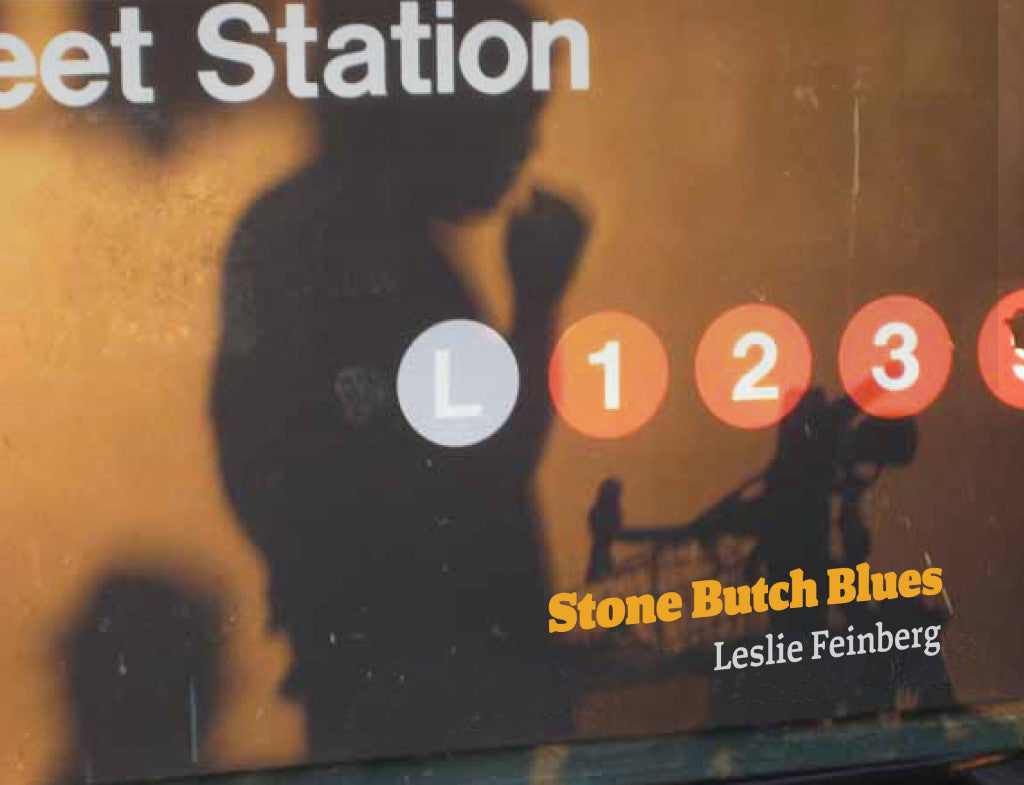

Shipping Info
| CANADA | Order | Shipping cost |
|---|---|---|
| Expedited Shipping | under $99 | $7 |
| Expedited Shipping | over $99 | FREE |
| USA | Order | Shipping cost |
|---|---|---|
| Expedited Shipping | under $150 | $30 CAD |
| Expedited Shipping | over $150 | FREE |
| Ottawa/Gatineau | Order | Shipping cost |
|---|---|---|
| Same-Day Shipping | any | $15 |
Specifications
| Format | Paperback |
| Pages | 452 |
| Year Published | 1993 |
| Publisher | This edition is print-on-demand and sold at cost |
More Info
Feinberg commented on Stone Butch Blues in hir Author’s Note to the 2003 edition:
“Like my own life, this novel defies easy classification. If you found Stone Butch Blues in a bookstore or library, what category was it in? Lesbian fiction? Gender studies? Like the germinal novel The Well of Loneliness by Radclyffe/John Hall, this book is a lesbian novel and a transgender novel—making ‘trans’ genre a verb, as well as an adjective . . .”
“I am typing these words as June 2003 surges with Pride. What year is it now, as you read them? What has been won; what has been lost? I can’t see from here; I can’t predict. But I know this: You are experiencing the impact of what we in the movement take a stand on and fight for today. The present and past are the trajectory of the future. But the arc of history does not bend towards justice automatically—as the great Abolitionist Frederick Douglass observed, without struggle there is no progress . . .”
In hir 2014 Author’s Note to the 20th anniversary Author’s Edition, Feinberg reflects that language usage had changed in naming the sex and gender spectrum zie/she had so eloquently described in 2003:
“The use of the word ‘transgender’ has changed over the two decades since I wrote Stone Butch Blues. Since that time, the term ‘gender’ has increasingly been used to mean the sexes, rather than gender expressions. This novel argues otherwise.”
“So I can only note that, like planes, trains and automobiles, the same technological vehicles of hormones and surgeries take people on different journeys in their lives—depending on whether their oppression/s is/are based on sex/es, self/gender expressions, sexualities, nationalities, immigration status, health and/or dis/abilities, and/or economic exploitation of their labor.”
Illness and then hir death in 2014 kept hir from a further task for the Author’s Edition:
“I had hoped to write an introduction to place this novel within its social and historical context, the last half of the 20th century. Context is everything in politics, and Stone Butch Blues is a highly political polemic, rooted in its era, and written by a white communist grass-roots organizer.”




